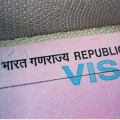
*This article has been updated to reflect the removal of the PIO status as of 9 January 2015. If you currently hold a PIO card, it will be treated as an OCI card. Updates are marked in blue.
For many Indians, moving out of India is a symbol of status. It is a matter of pride for a family to be able to say their son is working in the US and their daughter is in Dubai.
However, Indians who live abroad also work very hard at maintaining a strong connection to India.
This creates trouble for the Indian government in figuring out how to deal with the more than 22 million Indians living in another country. What about land ownership? Voting? Taxation? While many have renounced their Indian citizenship, they still want to be active in India.
There are three terms you should be familiar with that categorize Indians who live abroad: NRI, PIO, and OCI.
The Short Version
NRIs (Non-Resident Indians) are Indian Citizens who live in another country.
PIO (Person of Indian Origin) used to be a 15 year visa for non-Indian citizens, but it has since been removed.
OCIs (Overseas Citizen of India) are non-Indian citizens who have a lifetime visa to live and work in India with fewer restrictions.
The Long Version
NRI
While OCIs have given up their full Indian citizenship, NRIs are still citizens of India. This is technically a tax classification as opposed to a visa status.
Who can be an NRI?
An Indian citizen residing outside India for a combined total of at least 183 days in a financial year (from April 1 to March 31).
What are the benefits of being a NRI?
- You can get special bank accounts from Indian banks.
- You can continue to own land and property in India.
- Your earnings outside India are not taxed by the Indian government, provided you have paid taxes in the nation you reside in. Local earnings in India (interest, rental income) are still taxed.
- There is a special quota of seats in Indian universities reserved for NRIs.
- You can still vote, but you have to be in India to do it.
What are the drawbacks?
- You may need permission to take out money invested in India.
- You may not purchase agricultural land or farm houses.
- You may not hold a government job.
- You may not be elected to a political position.
How do you become an NRI?
There is no application form needed. The only official record of being an NRI comes on your yearly tax filing. This status can change from year to year. If you wish to open an NRI bank account, you simply need to inform your bank of your plans.
OCI
An Overseas Citizen of India is a lifetime visa status. It is the closest thing to dual citizenship that India offers.
Who can be an OCI?
(This list was expanded as of 9 January 2015)
- A person who used to be an Indian citizen
- A person with at least one parent, grandparent, or great-grandparent who is/was an Indian citizen
- A person married to an Indian citizen or an existing OCI for at least two continuous years
The following groups of people cannot have OCI status:
- Anyone who was ever a citizen of Pakistan or Bangladesh
- Anyone whose parents or grandparents were citizens of Afghanistan, Pakistan, Bangladesh, China, or Sri Lanka
- Anyone who served in a foreign military or worked in a foreign defense department
What are the benefits of being an OCI?
- Lifelong multiple entry visa to India
- You never have to report to the FRRO regardless of the length of your stay
- You can eventually become a citizen of India if you remain an OCI for 5 years and live in India for at least 1 year (short breaks are now allowed)
- You can use special counters during immigration
- You don’t need a student visa to study in India
- You don’t need an employment visa to get a job
- You can open a special bank account in India, just like an NRI
- You can make investments in India
- You can buy non-farm property and exercise property ownership rights
- Your can use your OCI card to apply for a driver’s license, open a bank account, or get a PAN card
- You get the same economic, financial, and education benefits as NRIs (e.g. reserved admission quotas), and you can adopt children like an NRI
- You pay the Indian resident fee when visiting a national parks, monuments, museums or wildlife sanctuary (of course it is ultimately up to the discretion of the man issuing tickets)
What are the drawbacks?
- You may not purchase agricultural land or farm houses
- You may not vote
- You may not hold a government job
- You may not be elected to a political position
- You may not travel to restricted areas without permission
How do you become an OCI?
You can apply through the Indian embassy in your country of residence or within India at the local FRRO.
Here is a sample of documentation you will need (see your local consulate for a specific list):
- Proof of present citizenship
- Proof of former Indian citizenship (for you or your relative)
- Proof of renunciation of Indian citizenship (if applicable)
- Proof of relationship to an Indian citizen
The entire process can take several months in some cases. Fees vary from nationality to nationality. If you apply in India, the fee is Rs. 15,000 for an adult or Rs. 8,000 for a minor. You can convert a PIO card to an OCI card if you qualify, and the fees are very nominal.
You can start the process by going to http://passport.gov.in/oci/.
Sources
http://moia.gov.in/writereaddata/pdf/NRISPIOS-Data(15-06-12)new.pdf
http://boi.gov.in/content/person-indian-origin-pio
http://www.ixpvisas.com/india-visas/overseas-citizenship-of-india.html
http://www.immihelp.com/nri/pio-vs-oci.html
Photo Credit: “Times Square” by Asim Bharwani on Flickr, Creative Commons license





OCI has a few more ‘hiccups’ and limitations though…
For example, if you acquired an OCI through marriage, on death or divorce of the Indian spouse, the status is revoked with a limited period to divest of all property and leave the country. “My condolences madame on the loss of your husband. I see your lovely Indian children are so despondent too. However, madame, let me inform you that while your children may remain, you have to leave the country!”
Additionally, investment is restricted. Just try investing in stocks or mutual funds while being a Canadian or American citizen even though resident in India (i.e. tax status in India) with a PIO / OCI status. No can do.
Just a couple extra ‘cents’ added to an excellent update on the NRI / PIO / OCI question!
I always wondered about that, actually. Thanks for the extra information! Sorry for the abrupt answer you got!
You forgot to mention one imp point.
OCI card holders can visit India for business, employment, tourism and education without visa.
However, Overseas Citizen of India (OCI) Card holders desirous of visiting India for the purpose of conducting Research, must obtain separately a No Objection/Research Project Clearance Certificate from the Indian consulate before travelling to India.
http://www.cgihouston.org/page/display/92/19
Really so in the hypothesis that my husband who is an Indian citizen died and if we live in India, I as a French citizen will have to leave India after his death !!! This is ridiculous amendment to the law.
Can you give the source as they said OCI is for life visa !!
Correct – your visa is no longer valid on death/divorce if your OCI was acquired via marriage. There was talk of 10 days deadline to leave the country however I never could find that in writing and in practice it was relaxed in the last year.
The source is the Jan 2015 Citizenship Ordinance which clarified OCI replaces PIO.
OCI is NOT life visa for anyone who acquires via marriage.
OCI is a life visa for those who themselves, parent, grandparent, great grandparent can prove their Indian citizenship.
Hope this helps!
Thanks, Carissa.
Hello Carissa Hickling,
My wife is from Phillipines, Might be next month she will get X-Visa.. Now if she need to apply for OCI card is there any restriction that after two years of marriage only she is eligible to apply OCI….?
Thank You in advance…
Just as noted – can apply for an OCI after being married for a minimum of 2 years. All the best!
Thanks Carissa…
lucid explanation